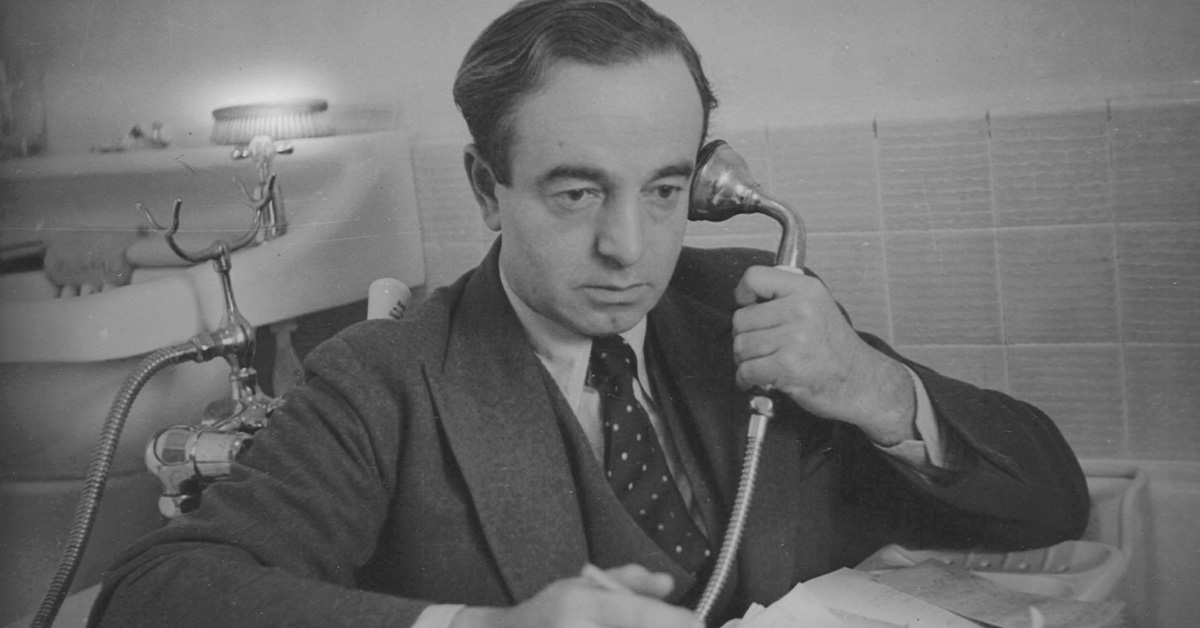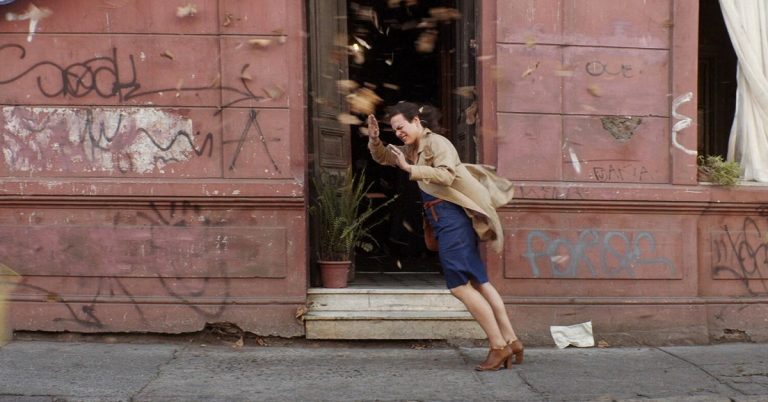
by Josephine Botting
Approaching an archival collection the scale of Adrian Brunel’s is a daunting prospect.
Every box contains a hotchpotch of items, which at first defy coherence: snapshots, letters, diaries, cuttings, contracts, scribblings on scraps of paper, legal summons and bus tickets. Yet the deeper you excavate, the greater the significance the material begins to acquire. Patterns and themes emerge and the person who assembled the collection begins to take shape, as their anxieties and preoccupations, their allegiances and enmities, their loves and hates surface.
Adrian Brunel is a filmmaker well-known to those interested in British cinema of the 1920s and 1930s, but beyond that small cohort he is virtually unheard of. Yet his is one of the most frequently accessed paper archives in the BFI’s Special Collections. Researchers looking into the histories of Alfred Hitchcock, Ivor Montagu, Michael Balcon and Basil Dean – all figures whose stamp on British film history is firmer than Brunel’s – have delved into it for their own research, since his career is intertwined with all of these figures during the 1920s.
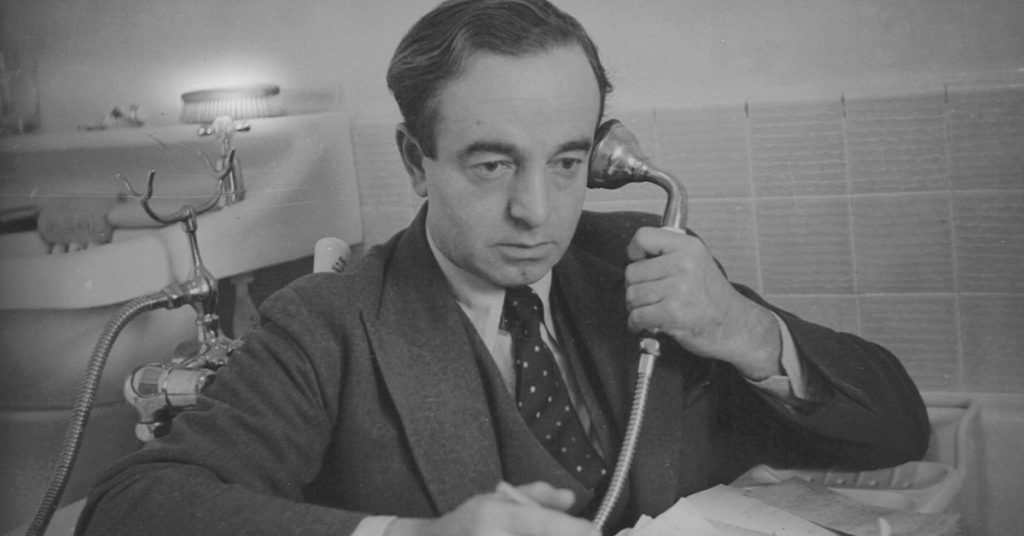
Yet the collection assumes a much greater value as a record of an individual’s career and how it was affected by the industry. As such, it reveals a great deal about the film business itself, especially given Brunel’s distinctive perspective on filmmaking. His belief that cinema could be an art form was out of step with the views of those who ran the film trade and brought him into conflict with them, forcing him to find ways to circumvent those who tried to stifle his creativity. The debate over film as art continues in the UK, where its status as an entertainment medium generally goes unchallenged, except in more rarefied exhibition venues.
When Adrian Brunel’s son Christopher died in the late 1980s, his East London home contained the remnants of three generations of the family, which was donated to the BFI National Archive. After a painstaking cataloguing process, it now resides in over 240 boxes at the conservation centre’s paper store in Berkhamsted. While it relates mainly to Adrian Brunel there is also material documenting his mother Adey, a writer and elocutionist, as well as the papers of Christopher, who joined his father in the film industry. Meanwhile, the Brunels’ unparalleled collection of books relating to Thomas Paine went to the Working Class Movement Library in Salford, near Manchester.
Immersing yourself in a lifetime of papers and objects chronicling one person’s life and career gives a rare and intimate insight into them. I found myself feeling discouraged by the slights and setbacks that Brunel endured and uncomfortable at his occasional arrogance; the delight I felt reading the critics’ praise for his films was tinged with regret knowing that each small peak of success was followed by a much deeper trough of failure. Brunel veered between extreme highs and lows, frequently on the edge of bankruptcy, depression and ill-health yet surviving the bad times thanks to a sense of humour and a supportive and steadfast wife.
A child of divorce, devoted to his mother and to women’s causes, Brunel had little formal education but a cultured and cosmopolitan upbringing. He trained as an opera singer but was attracted by the glamour and excitement offered by the new medium of cinema, spending the rest of his career chasing opportunities which, for the most part, eluded him. Despite his personal frustrations, he generously assisted many others in the industry, often seeing their careers eclipse his. Directors Alfred Hitchcock and Basil Dean, producer Ian Dalrymple and Ealing writer Angus MacPhail all benefited from his enthusiasm and expertise.
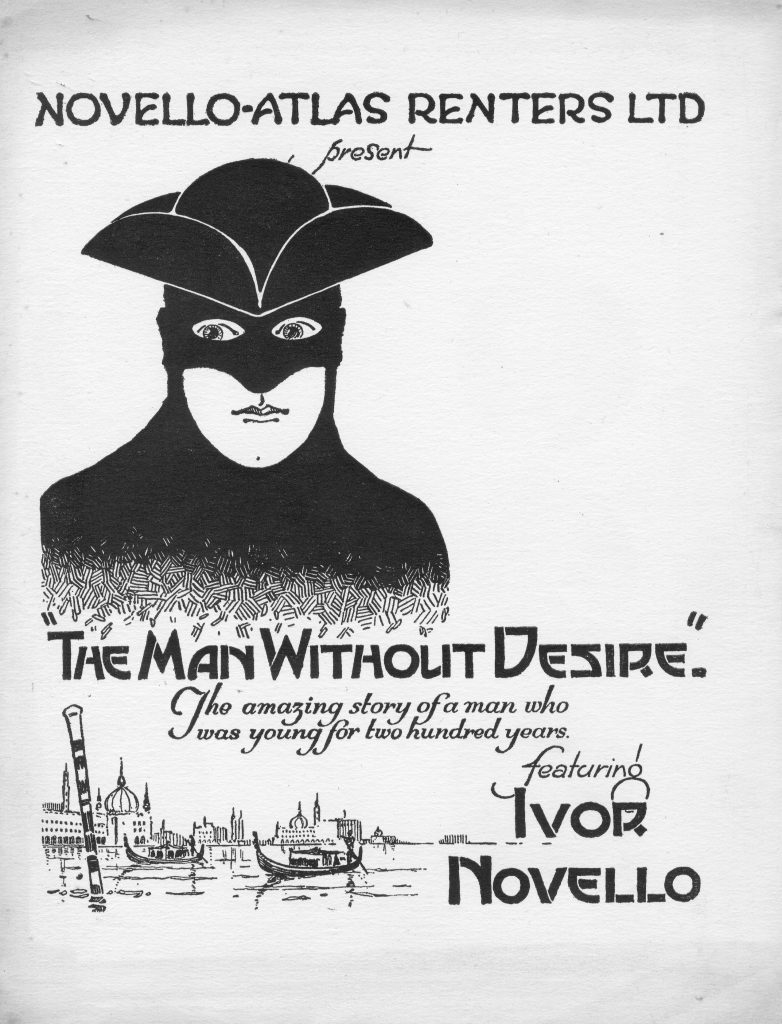
His achievements in the face of numerous obstacles are notable and he leaves behind some highly regarded silent features, including The Man Without Desire (1924) and The Constant Nymph (1928). His short burlesques, especially Crossing the Great Sagrada (1924), poke fun at cinematic conventions of the time and play with editing and juxtaposition. But his presence in studies of silent cinema is mostly attributable to his tireless self-promotion and his hoarding tendencies, describing himself as a ‘systematic jackdaw’ who amassed a ‘fascinating and useful treasury of interesting odds and ends’. Preserving ones footprint so comprehensively leaves a rich resource for researchers; decluttering a la Marie Kondo may be good for the soul but doesn’t secure you a place in the history books.
The culmination of my research into this ‘fascinating treasury’ is a book that charts Brunel’s navigation of the 1920s screen trade. I hope he would be pleased with it, and perhaps feel that it vindicates his refusal to abandon his efforts to imbue British films with artistic flourishes in the face of the philistinism of trade bosses. If nothing else it should bring him satisfaction that his ‘jackdaw’ habits led to one of the most comprehensive records of British filmmaking in the silent era.
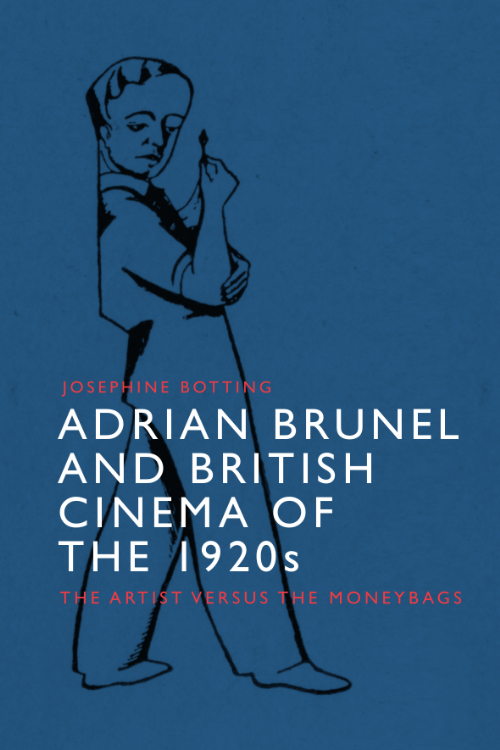
About the book
Order your copy of Adrian Brunel and British Cinema of the 1920s: The Artist versus the Moneybags – Get 30% off with discount code NEW30
Using the experiences of Adrian Brunel, Josephine Botting demonstrates how this clash affected the careers of filmmakers attempting to prove their theory. Brunel was cultured yet financially insecure, caught between the creative Bohemianism of 1920s London and a conventional, conservative film industry.
About the author

Josephine Botting has worked at the BFI since 1998 after gaining experience at Reuters and various other moving image archives. Her work entails dealing with donors to the national collection as well as researching and interpreting the holdings of the BFI National Archive.
As a curator, programming is key part of her role and she has programmed several seasons at BFI Southbank, including Deborah Kerr, Gloria Grahame, Margaret Lockwood and Muriel Box. She also has a regular strand showcasing rare British films on 35mm from the collections.
She occasionally writes for Sight and Sound and the BFI’s online and digital platforms and contributes to radio and television programmes on various aspects of film history.
Josephine’s main interest is in British cinema, particularly the representation and involvement of women. Outside the BFI, she gives interviews and writes for blu-ray releases. She has an MA in Spanish horror from the University of Kent and a PhD from Royal Holloway, University of London.


